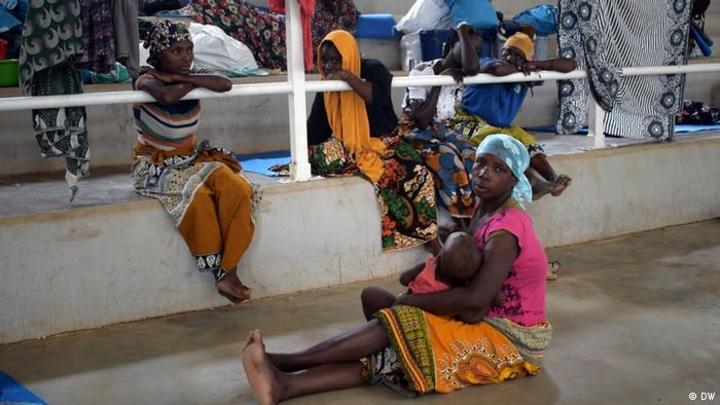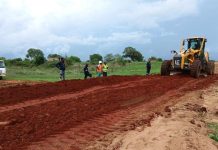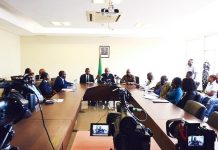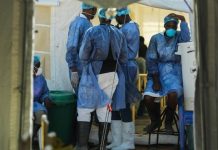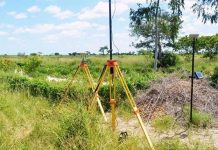Africa-Press – Mozambique. A study entitled “Causes and Determinants of the Conflict in Cabo Delgado and its Impact on Women’s Lives” prepared by the Centre for Strategic Studies of the Joaquim Chissano University in partnership with UN Women was presented in Maputo this Monday (06-12).
While gender violence was under reported in most IDP shelters, the situation is different in Metuge, according to Egna Sidumo, one of the study’s authors and an expert on the prevention of violent extremism.
In northern Mozambique, the insurgency has pushed women into circumstances where human rights are less respected, Sidume says in an interview with DW Africa.
DW Africa: Under normal conditions, women’s rights are usually not properly respected in Mozambique. This worsens in the context of war in Cabo Delgado…
Egna Sidumo (ES):
Obviously, yes. The lives of women in a situation of peace are already characterized by several challenges, whether for cultural, religious or other reasons. And this ends up getting worse in times of conflict. One of the evidences on this is that all [IDP reception] centres host between 70% and 80% women, but representation in these centres does not reflect this majority at all.
We have thousands of children and women, but the centre’s leadership structure does not include these women. How are the daily lives of these women reflected in meetings held by the leaders? How are their needs met, if they are the majority but not represented? And they are the first ones who deal with partners and authorities to send their complaints.
This is a clear concern that demonstrates that it is very difficult to realize the importance of integrating women, not necessarily because of their number, but because they are the majority. This means that all the needs of the centre go through understanding the needs of women. We should have two to three partners who are directly focused on women, on the issue of dignity, family planning, psycho-social care and other challenges.
DW Africa: Are there security conditions for women in IDP centres so that they are not sexually violated, beaten and so that they also have access to food, goods and services equal to men?
ES:
Sexual violations were very little reported in the work we did, but there is one district in particular where the number of sexual violations has increased, according to authorities in the Metuge district, which has a significant number of centres, and it was also the first centre (to open). We were informed that there was an increase in sexual violations there.
And yes, we find domestic violence, partly because of the pressure that men are exposed to, without many work options. But maybe it’s also a cultural issue. I must remind you that we have not yet analysed the data to understand why there is domestic violence. This is the result of about 500 focus groups that we did with women, where they even reported that domestic violence is normalized. Now, a big concern is rape, which we did not had big numbers reported in all centres in big numbers, but domestic violence, yes.
DW Africa: What consequences of the armed conflict have you observed for women?
ES:
The most visible consequence is the violation of human rights in general. They lost what little security they had in their areas of origin, the security of having a land, a source of income, a business or a farm. They lost security, and live in centres with men and strangers, with several differences, and end up being a very easy target for sexual violations, although cases of these have not been reported in our work, but there are cases of domestic violence or prostitution in exchange for food or loyalty.
Many young women ended up marrying some members of the community in order to obtain food security. We found parents who somehow felt proud that their girls got married in these areas, as they found a protector and guarantor of their survival. There are many consequences, if we think of women without water, waking up every day with no prospects for what to eat, how to feed their children. These are constraints, and we have little idea about the level of vulnerability they are exposed to with the conflict.
DW Africa: Is there a coordinated support system for women in Cabo Delgado?
ES:
There is still no specific coordinated system to support women, and that is one of the recommendations that we intend to put in the final report. There are no partners in any centre in Cabo Delgado who work directly and only with women, with specific support for women.
We have assistance for minors in terms of food and schooling, with school uniform, books, notebooks and even lunch, in some cases. We have job kits, in some cases so that men can engage in income-earning activities, but we don’t have integrated partner support for women that deal with women’s specific issues: sexual reproductive rights, the issue of childbirth. Many women who lose their children, and travel great distances to access hospitals.
Work is already underway to provide medical assistance brigades, such as Doctors Without Borders (MSF), but they are insufficient and uncoordinated. They are isolated cases of some units that have this support. We would like to integrate this component in a much more coordinated provision of support for women.
For More News And Analysis About Mozambique Follow Africa-Press

